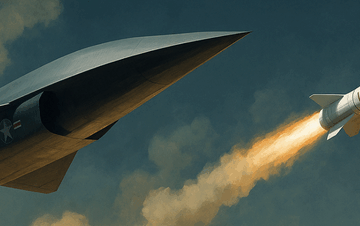The United States is acknowledged as the global leader in both military and commercial space. Today’s geopolitical landscape is multipolar due to the rise of China as a potential rival to American space dominance. While the US maintains strong alliances, China has few allies it can use to achieve its aims. Instead, China resorts to coercion to achieve its terrestrial and space objectives. For the US to deter threats more effectively in space, in the long term, it must integrate like-minded nations to share the deterrence burden.
Today we see America’s allies supporting the fundamental rights of access to space and its derived services. The United Kingdom (UK) leads work in the United Nations to create a space norms of behavior mandate that will enable the UN to hold irresponsible nations accountable for their behavior. Holding nations accountable is vital. Russia and China are deploying anti-satellite (ASAT) and direct energy weapons (DEW) that can target commercial and military space infrastructure. The Combined Space Operations (CSPO) Vision’s role is to develop and share a common understanding of military space operations and policy. It is a critical framework that serves as a foundation for such allied enforcement mechanisms. It recently expanded to include Italy, Japan, and Norway.
These new initiatives are not just a good idea, they are threat driven and a reaction to adversarial space activity that threatens allied space infrastructure. ASAT deployments and rendezvous and proximity operations (RPO) by China and Russia are of concern and the aggressor nations must be held to account—through strong allied military and political efforts. Attempts to reduce the risk of misunderstandings on orbit are also of paramount importance, because the United States does not want a Cuban Missile Crisis in space.
UK Space Command was created in April 2021 to act as the single UK military voice in allied enforcement efforts, and rather than duplicating American capabilities UK Space Command seeks to supplement American systems by enhancing resilience. This can be multifaceted. It can include the addition of novel sensors as well as increasing satellite communication capacity. CSPO members also provide capabilities that increase resilience and operational effectiveness. A few examples are instructive.
First, the UK and US share Royal Air Force (RAF) Base Fylingdales in Yorkshire. This base combines missile warning and space surveillance at one place. In addition, RAF space operators and planners have been leveraged in numerous command-and-control facilities worldwide, including US Space Command and the North Atlantic Treaty Organization (NATO). The UK is a leader in providing satellite communications’ capabilities to NATO through the SKYNET constellation.
Second, Australia, like the UK, has a Defence Space Command and a civilian space agency working in unison. This civilian and military relationship ensures that if an adversary were to attack a commercial satellite the military could act to defend it. Australia has gone further to align itself to American space deterrence and warfighting capabilities by declaring possession of offensive space control capabilities. These capabilities are important to maintain credibility in the minds of adversaries. China maintains an “attack to deter” mindset, and without such capabilities the credibility of extended deterrence in space is lost.
Third, Canada contributes additional space situation awareness (SSA) capabilities, an example being their Sapphire satellite which feeds into several US and allied SSA systems. As is the case with the UK and Australia, Canada also contributes skilled space professionals to American and allied space commands, staffs, and space robotic systems to enhance resiliency in the face of threats in, from, and to space.
In addition to the “Five Eyes” partnership, NATO is a vital organization for deterrence in space and on earth. Article 5, and the commitment to collective defence, is one of the most potent forms of deterrence in place in any military alliance around the world and is applicable to elements of space infrastructure. To enhance NATO’s operational support to deterrence capabilities it established the NATO Space Centre of Excellence in France and the NATO Space Operations Centre in Germany. These initial steps enable NATO military commanders and political leaders to deter attacks on the critical space systems that enable successful terrestrial operations. For NATO to deter it must act upon the call for defensive capabilities and communicate coherently about rising threats. Failure to do so will erode the alliance’s unified front and therefore its credibility.
Deterrence in space is hard but by integrating the evolving capabilities of allies at a greater depth deterrence can be achieved not only in space but across all domains. The rise of allied space commands, capability integration, and enhancements of resiliency will only grow in importance as space expands its reach into the day to day lives of our peoples and societies.
Major Robert Atchison QRH is a British Army officer who serves as the Military Assistant to Commander of UK Space Command.




